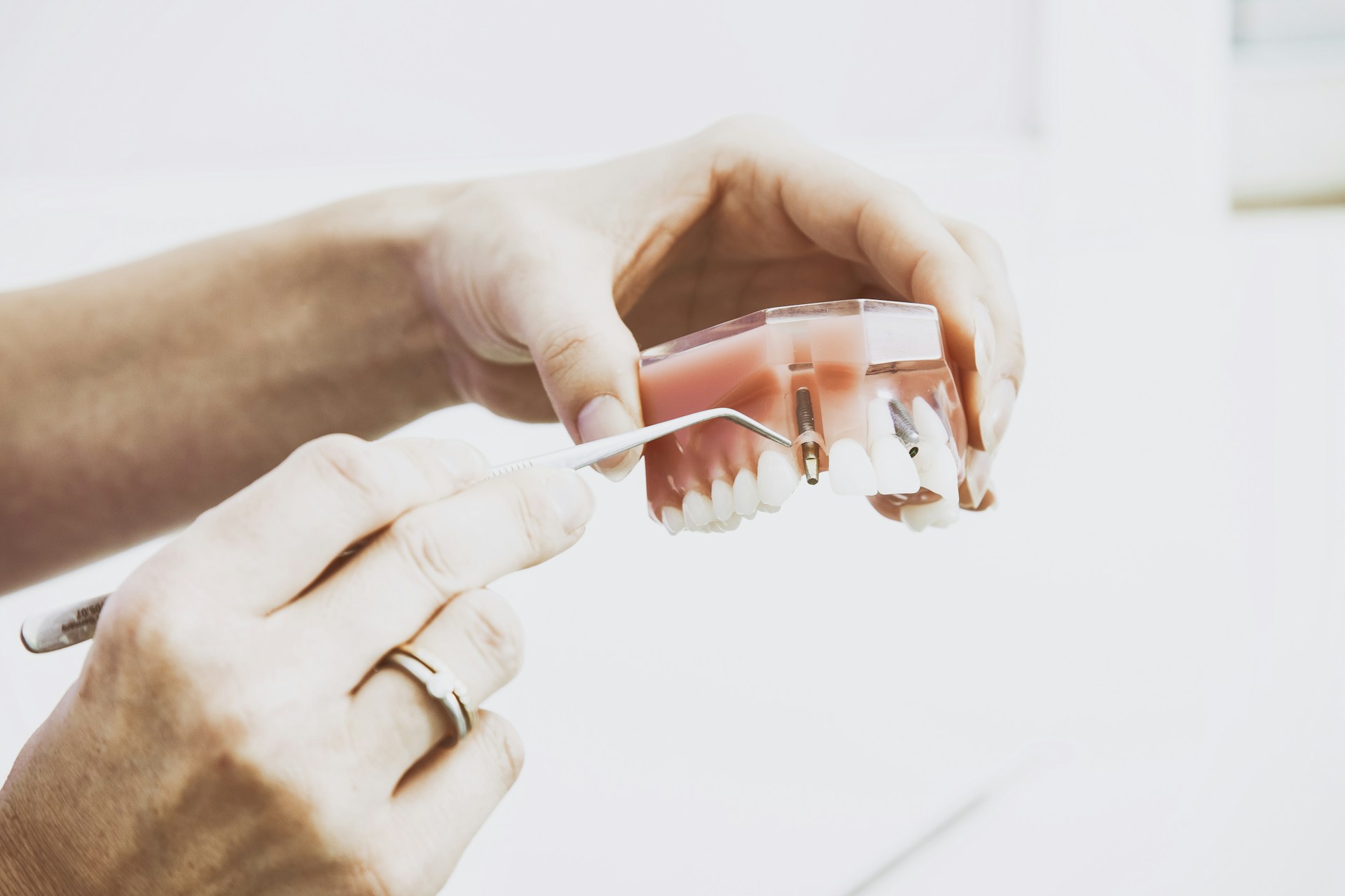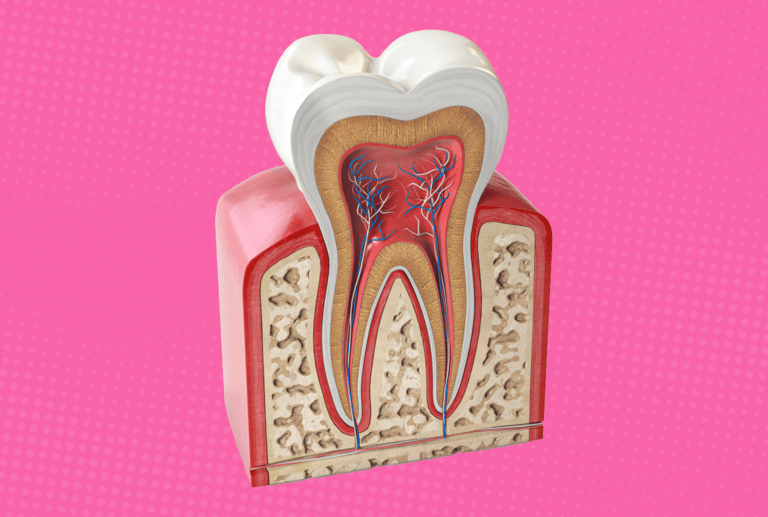SMILE- It costs nothing !!!
Understanding Root Canal Pain After Years : Causes & Solutions
Discover why your root canal tooth may hurt years later. Explore common causes such as reinfection and gum issues, symptoms of failed root canals, and effective treatment options to alleviate root canal pain after years.pp
9/25/2024
Why Is My Root Canal Tooth Hurting After Years?
A root canal is often performed to save a tooth from infection, decay, or damage. Once the procedure is completed, you may assume the tooth is permanently fixed.
But it’s not surprising for you to experience pain in the root canal treated teeth after years . This is because even after a successful root canal, infections may occur leading to pain.
If you’re experiencing pain in a tooth that’s had a root canal, you may wonder why this is happening.
Reasons for Pain in a Root Canal Tooth After Years
There are many causes for post-root canal pain.
1.Reinfection of the Tooth
This is one of the most common reasons for pain in a root canal-treated tooth .
Although your dentist removes the infected pulp from inside the tooth during a root canal procedure, bacteria can sometimes re-enter through small cracks in the tooth or an incomplete seal, leading to reinfection.
This can cause symptoms similar to the original infection, including pain, swelling, and sensitivity.
Signs of reinfection:
Persistent pain or throbbing
Swelling around the tooth or gums
A bad taste in your mouth or bad breath
2.Failed Root Canal
In some cases, a root canal may fail because the infected tissue wasn’t fully removed during the procedure.
This can happen if the tooth’s root system is complex, with additional tiny canals that weren’t treated.
Over time, bacteria can grow in these untreated areas, leading to pain and discomfort.
Why root canals fail:
Incomplete removal of infected tissue
Untreated accessory canals
Poor sealing of the tooth after the procedure
Related :
3.Cracked or Damaged Tooth
After a root canal, the tooth becomes more brittle due to the removal of the pulp and tooth structure.
Over time, this can lead to cracks or fractures in the tooth, allowing bacteria to infect the tooth ,causing pain.
Signs of a cracked tooth:
Sharp pain when chewing or biting after root canal
Sensitivity to hot or cold temperatures
Pain that comes and goes
4. Gum Infection or Periodontal Issues
Pain around a root canal-treated tooth may not always originate from the tooth itself but from the surrounding gums or bone.
Gum disease (gingivitis & periodontitis) or infections in the bone surrounding the tooth can cause pain that feels like it’s coming from the tooth.
If gum disease progresses without treatment, it can affect the stability of your tooth, leading to discomfort.
Symptoms of gum issues:
Bleeding or swollen gums
Receding gums around the treated tooth
Persistent bad breath
Related : Understanding periodontal disease
5.Missed Canals
Some teeth, especially molars, have complex root systems with multiple canals.
In rare cases, a canal may be missed during the initial root canal treatment, leaving infected tissue behind. Over time, this untreated canal can become a source of infection and pain.
What to look for:
Gradual return of tooth pain years after the procedure
Swelling around the treated tooth
6. Crown Issues
You may have got a crown on your teeth after a root canal therapy .This is done to protect the tooth and restore function.
However, if the crown is damaged, ill-fitting, or not properly maintained , this can lead to infection or pain. A gap between the crown and the tooth can create a space for bacteria to thrive.
Possible crown-related issues:
Pain when biting down
Sensitivity to cold or hot temperatures
Visible wear or damage to the crown
How Do You Know If an Old Root Canal Is Infected?
An infection in a previously treated root canal can manifest with symptoms similar to those experienced before the original procedure, such as:
Persistent throbbing or sharp pain
Swelling around the tooth or gums
Sensitivity to hot or cold
Bad taste in the mouth or bad breath
Formation of a pimple or abscess on the gums
If you notice these symptoms, it's important to see a dentist as the tooth may need retreatment.
Symptoms of a Jaw Infection After Root Canal
In rare cases, an untreated infection can spread beyond the tooth and affect the jaw. Symptoms of a jaw infection include:
Severe pain that radiates to the jaw, face, or ear
Swelling in the jaw area
Difficulty opening the mouth
Fever or chills
Pus or discharge from the gum tissue
If you suspect a jaw infection, seek immediate dental care.
What Should You Do If Your Root Canal Tooth Hurts After Years?
If you experience pain in a tooth that had a root canal years ago, it’s essential to contact your dentist as soon as possible.
They will likely conduct an examination, take X-rays, and assess the health of the tooth and surrounding area.
Here are some potential treatments your dentist may recommend:
Retreatment of the Root Canal If the tooth is reinfected, your dentist may recommend redoing the root canal.
This involves removing the old filling material, cleaning the tooth again, and resealing it to prevent further infection.
Endodontic Surgery (Apicoectomy) In cases where a reinfection occurs at the tip of the tooth root, a more advanced procedure called an apicoectomy or root end surgery may be required.
This surgery involves removing the tip of the root and any infected tissue around it.
Extraction of the Tooth If the tooth cannot be saved due to extensive damage or infection, extraction may be necessary.
After extraction, your dentist can discuss tooth replacement options such as a dental implant or bridge.
Periodontal Treatment If the pain is caused by gum disease or infection in the surrounding bone, your dentist may refer you to a periodontist for treatment.
Scaling, root planing, or other periodontal procedures may be necessary to restore gum health.
How to take care of root-canal treated teeth ?
To reduce the chances of complications or pain after a root canal, it’s important for you to maintain good oral hygiene and take care of the tooth.
Try to follow these tips to prevent complications:
Maintain good oral hygiene: Brush and floss regularly to keep your teeth and gums healthy.
Attend regular dental check-ups: Routine exams allow your dentist to monitor the health of root canal-treated teeth and address any potential problems early.
Protect your teeth: If you grind your teeth at night, consider using a night guard to prevent damage to root canal-treated teeth.
Address bite issues: If you notice any problems with the fit of your crown or feel discomfort when chewing, inform your dentist to prevent future complications.
Experiencing pain after a root canal years later is concerning, but there are various reasons this can happen, and is not uncommon.
If your root canal-treated tooth begins to hurt long after the procedure, it’s essential to see your dentist for an evaluation.
They will determine the cause and recommend the best treatment to stop the pain and preserve your tooth’s health.

Contact Smiles
drdeepi15@gmail.com
Dr. Deepika B.D.S
© 2025 SmileWide Dental. All Rights Reserved.
Have doubts ..?


